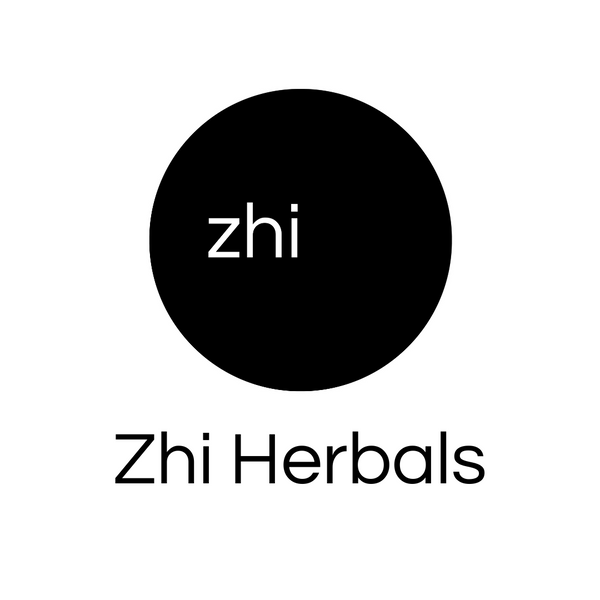
Does Ashwagandha Make You Horny?
Share
Unveiling the Truth: Does Ashwagandha Make You Horny?
The earthy herb ashwagandha, with a name that whispers of ancient wisdom and healing secrets, has been a staple in Ayurvedic medicine for centuries. Best known for its adaptogenic properties—helping the body combat stress—it plays a key role in our Anti-Stress Tea Blend, as well as many other adaptogen formulas made in apothecaries around the world. Lately, ashwagandha has been piquing modern interest with claims extending into the realm of sexual health. This prompts an intriguing query: does ashwagandha make you horny?
This blog post delves into the depths of this question, not only unearthing ashwagandha’s purported effects on libido but also shining a light on its comprehensive benefits and its possible side effects for individuals of any gender. As we navigate through scientific evidence and anecdotal experiences, let's unravel the potential of this storied herb in invigorating the flames of desire.
Understanding Ashwagandha and Libido
A well-known aphrodisiac in some circles, ashwagandha root, also known as Withania somnifera, stands tall in the arsenal of natural supplements aimed at enhancing vitality and well-being. But when it comes to igniting sexual drive, can this ancient remedy truly deliver?
Definition and Origins of Ashwagandha
With its roots deeply entrenched in Indian Ayurvedic practices, ashwagandha is a small shrub with tiny flowers and berries, its power residing within its roots and orange-red fruit. Although the fruit can be used in herbal medicine, the root is much more commonly available. Ashwagandha is a powerhouse of health benefits, but how does this relate to libido?
The Connection Between Stress, Hormone Levels, and Sexual Desire
Chronic stress, a malaise of the modern lifestyle, can wreak havoc on the body's hormone balance, exerting a dampening effect on libido. Ashwagandha positions itself as an adaptogen, aiming to shield and restore your equilibrium of hormones and, subsequently, potentially restoring sexual desire dampened by life's pressures.
Does Ashwagandha Work to Specifically Target Libido Enhancement?
A question that stirs curiosity and skepticism alike—does ashwagandha work directly on sexual desire? The answer lies in a complex web of hormonal interactions, physiological responses, and individual variability. Before jumping to conclusions, let us dissect the benefits this herb offers for both men and women and look at what studies say about its influence on our carnal urges.
Ashwagandha Benefits for Men
When exploring the manifold virtues of ashwagandha, its potential benefits for men's sexual health emerge as a compelling facet. From hormonal impacts to vitality and vigor, ashwagandha seems to be a beacon for men seeking natural ways to enhance their performance and desire.
Effect on Testosterone Levels and Male Fertility
Testosterone, the best-known male hormone, takes center stage in discussions about libido and fertility. Ashwagandha is reputed to boost testosterone levels, thereby potentially improving male sexual health. Studies have suggested that regular intake of ashwagandha supplements may not only increase testosterone but also augment sperm quality and count, making it a candidate for addressing fertility issues.
Discussion on How Ashwagandha Benefits Men's Sexual Health
Beyond its potential to increase testosterone, ashwagandha might also play a role in alleviating erectile dysfunction and promoting sexual stamina. Through its adaptogenic qualities, it may help in reducing stress and anxiety – factors often linked with compromised sexual performance. By tackling psychological barriers, ashwagandha could indirectly contribute to a more robust sexual drive and satisfaction. Modern research is inconclusive as to if ashwagandha can directly benefit erectile dysfunction as well, however, the indirect benefits of ashwagandha root are well studied.
Review of Studies and Evidence Supporting Libido Enhancement in Men
Several studies on ashwagandha root have yielded positive indicators of its impact on male libido. However, the evidence is not conclusive, and more research is needed to establish a direct correlation between ashwagandha intake and heightened sexual desire. Nevertheless, the existing research presents an optimistic picture for those considering ashwagandha as part of their regimen for improved sexual health.
Ashwagandha Benefits
In the quest to determine "does ashwagandha make you horny?" the evidence is promising, though not definitive. As we continue to explore the realms of sexual health and botanical aids, let's now turn our attention to ashwagandha's influence on women, further unraveling the threads of this ancient aphrodisiac.
Ashwagandha Benefits for Women
While ashwagandha has been widely studied for its potential impact on men's sexual health, it also holds a treasure trove of benefits for women. With its adaptogenic prowess, ashwagandha offers a complementary approach to enhancing female sexual health and vitality.
The Role of Ashwagandha in Female Hormonal Balance
Women's sexual health is intricately linked to hormonal fluctuations, with imbalances often leading to issues such as decreased libido and fertility challenges. Ashwagandha has been shown to support the body in normalizing hormone levels, which can help alleviate symptoms associated with hormonal imbalances like menopause or polycystic ovary syndrome (PCOS).
Exploring the Impact on Female Sexual Health and Desire
For women, stress can be a significant impediment to a fulfilling sex life. By potentially aiding stress reduction and promoting a calming effect on the nervous system, Ashwagandha may help in clearing the mental barriers to sexual desire. This, in turn, might lead to an increase in libido and overall sexual satisfaction.
Analysis of Research on Ashwagandha Benefits for Women in Terms of Arousal
Research exploring the effects of ashwagandha on women's sexual function is nascent but promising. Some studies suggest that supplementation could result in improved sexual arousal, lubrication, and orgasm quality—key aspects of pleasurable sexual encounters. However, similar to studies on men, further research is required to substantiate these claims fully.
As we pursue clarity on the question of "does ashwagandha make you horny?" the emergent evidence points towards beneficial outcomes for women's sexual health, adding layers of benefits to this herb's multifaceted profile.
The Science Behind the Libido Claims
To better understand the relationship between ashwagandha root and libido, it is necessary to examine the research and scientific claims surrounding this ancient herb. Though anecdotal reports and traditional usage often point towards certain benefits, it’s even better when these claims are backed by robust scientific evidence that we can use to draw reliable conclusions.
Examination of Scientific Studies on Ashwagandha and Sexual Desire
Numerous studies have investigated the effects of ashwagandha on sexual desire and function. For instance, a notable study published in the journal "Health Science Reports" showed that ashwagandha intake was associated with significant improvement in male sexual health and wellbeing. Another journal, “Biomed Research International“, recently published a study linking ashwagandha to improved results for women who were given questionnaires on sexual function. These studies usually evaluate a range of sexual wellness indicators, such as performance, satisfaction, orgasm, and, indeed, overall libido.
Understanding How Ashwagandha Works Within the Endocrine System
Ashwagandha may primarily work by acting on the endocrine system, which is responsible for hormone production and regulation. Its adaptogenic properties can help the body adapt to stress, hence reducing the negative impact stress has on the endocrine system and potentially restoring a healthy sexual desire. Ashwagandha is also suspected to stimulate the production of nitric oxide, which may improve blood flow and, consequently, sexual function.
Myth vs. Reality: Separating Anecdotal Evidence From Scientific Fact
While personal testimonials can be compelling, it's important to differentiate these from scientific data. Many people report an increase in libido after using ashwagandha, but such reports are best evaluated alongside scientific evidence. Clinical trials and systematic reviews provide even more conclusive evidence on the efficacy of ashwagandha in enhancing libido.
The exploration into whether or not ashwagandha makes you horny reveals a nuanced landscape, where promising scientific research converges with centuries-old use in traditional medicine. Although more high-quality studies and clinical trials are needed to draw definitive conclusions, the current body of evidence leans toward a positive association between ashwagandha and improved sexual health and desire.
Ashwagandha Side Effects for Female Users
Ashwagandha is generally considered safe for most females when used in proper dosages. However, it's essential to recognize that each individual can react differently, and there are potential side effects that female users should be aware of before incorporating ashwagandha into their wellness plan.
A Closer Look at Common and Uncommon Side Effects
For female users, ashwagandha is generally well-tolerated, but some might experience mild side effects, especially when taken in high doses. Common side effects can include gastrointestinal upset such as nausea and stomach aches.
Precautions and Considerations for Women Considering Ashwagandha Supplements
Certain groups, such as pregnant or breastfeeding females, should consult with their healthcare provider before taking ashwagandha. People with autoimmune diseases, thyroid disorders, or those on medications for blood pressure and blood sugar should also approach ashwagandha with caution and consult with a healthcare professional due to possible interactions with medication or changes to symptoms.
Ashwagandha Side Effects for Male Users
Just as with female users, Ashwagandha can also have some side effects for male consumers, especially when taken in high doses.
Discussion on Potential Side Effects for Men
Men may experience gastrointestinal issues, which are among the more common side effects and can be caused by consuming a dose that is too high. As ashwagandha can increase testosterone levels, it might interfere with hormone-related conditions or treatments. Autoimmune diseases, thyroid disorders, blood pressure and blood sugar can also be affected.
Addressing Concerns and When to Avoid Ashwagandha
Men with specific health conditions, such as prostate cancer, which can be sensitive to hormonal changes, should avoid using ashwagandha. It's also wise for men on medication for chronic conditions, particularly those relating to hormones or the immune system, to consult a healthcare provider before incorporating ashwagandha into their routine due to potential interactions.
Tips for Safe Consumption to Minimize Side Effects
To minimize any potential side effects, it is advisable to:
- Take ashwagandha with food or water to ease digestion.
- Monitor for any adverse reactions, particularly during the first few weeks of use.
- Consult with a healthcare professional before combining it with other medications or supplements.
- Stop using ashwagandha and seek medical advice if experiencing side effects.
Ashwagandha Could Help Make You Horny
In this exploration of ashwagandha's influence on libido, we have navigated through traditional benefits and modern science to uncover its potential as a sexual enhancer for both men and women. The relationship between ashwagandha and sexual health is complex, and individuals should always listen to their bodies and choose what works best for them.
Related Articles
Ashwagandha and Rhodiola Benefits
References
This blog post has been compiled from reliable sources to ensure the veracity of the mentioned details. Any reference to scientific studies, historical data, or culinary information on ashwagandha has been thoroughly cross verified.
- Lopresti, A. L., Drummond, P. D., & Smith, S. J. (2019). A randomized, double-blind, placebo-controlled, crossover study examining the hormonal and vitality effects of ashwagandha (Withania somnifera) in aging, overweight males. American journal of men's health, 13(2), 1557988319835985.
- Sengupta, P., Agarwal, A., Pogrebetskaya, M., Roychoudhury, S., Durairajanayagam, D., & Henkel, R. (2018). Role of Withania somnifera (Ashwagandha) in the management of male infertility. Reproductive biomedicine online, 36(3), 311-326.
- Dongre, S., Langade, D., & Bhattacharyya, S. (2015). Efficacy and safety of Ashwagandha (Withania somnifera) root extract in improving sexual function in women: a pilot study. BioMed research international, 2015.
- Wiciński, M., Fajkiel-Madajczyk, A., Kurant, Z., Kurant, D., Gryczka, K., Falkowski, M., ... & Zabrzyński, J. (2023). Can Ashwagandha Benefit the Endocrine System?—A Review. International Journal of Molecular Sciences, 24(22), 16513.
- Pachiappan, S., Ramalingam, K., & Balasubramanian, A. (2020). A review on phytomedicine and their mechanism of action on PCOS. Int. J. Curr. Res. Rev, 12, 81.
- Iuvone, T., Esposito, G., Capasso, F., & Izzo, A. A. (2003). Induction of nitric oxide synthase expression by Withania somnifera in macrophages. Life sciences, 72(14), 1617-1625.
